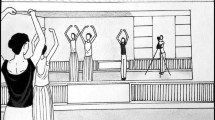Abstract
Unlocking the Iron Cage, Michael Schwalbe's 1996 ethnography of the men's movement, is in many ways a classic ethnographic account, involving almost three years of intensive participant-observation. But the study is innovative—and even daring—in its strategies for establishing textual authority. Schwalbe's claims rest primarily on his status as a movement insider and full participant. Yet the credibility this provides also raises questions about Schwalbe's ability to provide a critical analytic account of the movement. Can he be an objective observer of a group in which he is also a fully immersed participant? Schwalbe is innovative in his willingness to exploit, rather than simply minimize, the tension between participation and observation. While in most of the book Schwalbe follows conventional ethnographic practice by trying to minimize his obtrusiveness as a research presence, at several key moments in the study he emerges to provoke critical debate among the men. Without these passages, Schwalbe's empirical claims would lose some of their most convincing sources of support. While researcher obtrusiveness is usually considered a methodological flaw in ethnography, Schwalbe's work manages to turn it into an asset, enhancing both his data-gathering and his credibility as a critical authority. In the process, he creates a distinctive and compelling methodological style.
Similar content being viewed by others
REFERENCES
Bem, S. (1993). The lenses of gender. New Haven: Yale University Press.
Bly, R. (1990). Iron John: A book about men. Reading, MA: Addison-Wesley.
Clifford, J. (1983). On ethnographic authority. Representations, 1, 118-146.
Festinger, L., Riecken, H., & Schacter, S. (1956). When prophecy fails. Minneapolis: University of Minnesota Press.
Glesne, C., & Peshkin, A. (1999). Becoming qualitative researchers. Reading, MA: Addison-Wesley.
Goffman, E. (1959). The presentation of self in everyday life. Garden City, NY: Doubleday.
Hammersley, M., & Atkinson, P. (1995). Ethnography: Principles in practice. London: Routledge.
Horowitz, R. (1986). Remaining an outsider: Membership as threat to research rapport. Urban Life, 14, 409-430.
Humphreys, L. (1971). Tearoom trade. Chicago: Aldine.
Jorgenson, D. (1989). Participant observation: A methodology for human studies. Newbury Park, CA: Sage Publications.
Keen, S. (1991). Fire in the belly. New York: Bantam.
Lofland, J., & Lofland, L. (1995). Analyzing social settings. Belmont, CA: Wadsworth.
Marshall, C., & Rossman, G. (1989). Designing qualitative research. Newbury Park, CA: Sage Publications.
Sanjek, R. (1990). On ethnographic validity. In R Sanjek (Ed.), Fieldnotes: The makings of anthropology (pp. 385-418). Ithaca: Cornell University Press.
Schwalbe, M. (1995). The work of professing (A letter to home). In C. L. Barney Dews & C. L. Law (Eds.), This fine place so far from home: Voices of academics from the working class (pp. 309-331). Philadelphia: Temple University Press.
Schwalbe, M. (1996a). Unlocking the iron cage: The men's movement, gender politics, and American culture. New York: Oxford University Press.
Schwalbe, M. (1996b). The mirrors in men's faces. Journal of Contemporary Ethnography, 25, 58-82.
Stewart, A. (1998). The ethnographer's method. Thousand Oaks, CA: Sage Publications.
Stoddart, K. (1986). The presentation of everyday life: Some textual strategies for “adequate ethnography.” Urban Life, 15, 103-121.
Weick, K. (1979). The social psychology of organizing. Reading, MA: Addison-Wesley.
Author information
Authors and Affiliations
Corresponding author
Rights and permissions
About this article
Cite this article
Harrington, B. Obtrusiveness as Strategy in Ethnographic Research. Qualitative Sociology 25, 49–61 (2002). https://doi.org/10.1023/A:1014352107176
Issue Date:
DOI: https://doi.org/10.1023/A:1014352107176




